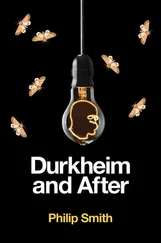Bendic put his glasses back on. Ma looked at her wristwatch and then up at the clock on the parlor wall. “Paul knows how dangerous the roads can be at night, he knows,” she muttered.
Ajie and Bibi shuffled off to their rooms, leaving their parents in the parlor. Ajie climbed into bed but was unable to sleep. He saw for the first time how high the bedroom ceiling was, and how long the curtains were, nearly grazing the floor beside Paul’s bed. In the morning, Paul will be home, he thought as his eyes scanned the half-lit space between his bed and Paul’s. The fluorescent light was on in the parlor; he didn’t hear his parents speaking but for a long time kept his eyes on the white light that fell through the gap underneath his door, straining his ears, willing his parents to say something he could hear, or at least get up, turn off the light, and go to their room.
When he woke up in the morning, Ajie looked around the room, his gaze sweeping the corners. He got up and checked the foot of Paul’s bed to see if his sandals or backpack had returned to their usual place, but there was nothing. Bendic was getting ready to go to the police station when Ajie came out of his room. He heard Bendic’s voice and walked into his parents’ bedroom, where Bendic was combing his hair before a standing mirror. His long-sleeved white shirt was tucked into his white underpants, sticking out above his hefty thighs. His black pin-striped suit was laid out on the bed.
“Mbani-o,” Ajie greeted him. “Good morning.”
Bendic held the comb away from his head as he responded. “How was your sleep?” he asked, and waited for Ajie to speak before he added, “I’m going to make a report at the police station.” He picked up his trousers from the bed. “Mere formality.” He put his legs into the trousers quickly and then reached for his shoes. “Maybe Paul will be home before I even get to the station.” He told Ajie that Ma had driven to work to drop off keys and that she would return home as soon as she could.
“Once Paul returns,” Bendic instructed Ajie, peering at his son’s reflection in the mirror, “ring my office immediately — tell Bibi this, too — and if I’m not there, leave a message with my secretary. You hear me?”
Ma came in from work just before lunchtime. She stopped by the gate as she drove in and wound down the car window to speak to Ismaila. Ajie and Bibi stood from where they sat on the veranda steps and walked toward the driveway. Ajie knew she was asking Ismaila if Paul had returned. When she got into the house, she dropped her bag beside her on the sofa and slipped off her shoes. “Your brother has not returned,” she said. Ajie shook his head. Bibi said no. Ma gave a light shrug and turned her lips downward the way people do when they don’t know what to make of something.
They sensed something had gone wrong, but it was new, whatever it was, so no one knew how to hold it properly. Not Paul, everyone thought. It was not like Paul to get into trouble or give anyone reason to worry. He was the least scolded of the children, the most commended by teachers. Even Bibi, with her excellent grades, had been scolded once or twice by her teachers. One teacher explained to Bendic that although Bibi was a sensible girl, her occasional impulse to fall in with the wrong crowd had to be watched for and curtailed. Ajie made up for his siblings’ good behavior: frequently fighting, reading novels during lessons, perpetually making noise. Teachers’ remarks in his report card ranged from subtle complaints to terse rebukes: “A little careless in his work,” “If he talks less, he will do better,” “Lack of respect for school property and property of others,” “Rude.”
Paul, on the other hand, was always the exemplary firstborn; the letters from school to his parents were usually consent to let him travel to another state as part of the school debate team or for some intercollegiate sporting event. In JS3 he was appointed the school bell ringer, a position generally viewed as grooming for a future head-boy position.
Bendic stopped by the police station again on his way from work. Ma followed him into his room when he got home; Ajie couldn’t hear more than a murmur from what he was saying to Ma. Ajie and Bibi hovered about the corridor, but in no time, the door handle rattled and Bendic came out of the bedroom. He went over to the dining table, where his food was laid out, and washed his hands. He molded the eba in his palm, but instead of dipping it in the soup, he rested his hand on the table, then returned the eba to the plate.
“Bibi,” he said, and Bibi got up from where she had just gone to sit on the arm of a chair, “take the food back. Cover it, I will eat later.”
That night Ma began making calls to friends. She spoke with caution, wording her questions carefully: Had they seen Paul? Had they heard anything about him? Had he come around to their place? He hadn’t come home in nearly two days. Some people kept her longer on the phone, and Ma would respond, “I don’t know. About twelve-thirty. We have reported it, but we are looking everywhere.”
They sent word to family friends. Like the pendulum on their parlor wall, they swung to either end, dread and hope, but generally stayed in balance: no hysterical outbursts, no screaming and pounding the walls for answers, no silent bitter tears that soaked the pillow when you lifted your head in the morning. There was just stillness. Something quiet crept about the house, made you feel a sudden chill, and sprayed your arms and neck with unexpected goose bumps.
It was Auntie Julie’s coming that in some way shook them all awake.
If you’d ever lived in Port Harcourt, you would know what a wet, tiring month September could be. June and July are heavy rain months. The rains stomp through the city, throwing punches, felling trees, striking down electric poles overnight across roads so that early-bird motorists get stranded, their headlights trapped in the predawn wetness, counting on the help of passersby to move a fallen tree off the road, to pry out tires stuck in loam. By early August everyone, even the TV stations, celebrates the onset of “August break”: two dry weeks of sharp sunlight, more or less. Wedding planners gauge and take advantage. On Saturday mornings, Trans Amadi Road clogs up with traffic. A tangle of cars, buses, trucks, and taxi motorbikes storms out from Garrison Junction to Nwaja Bridge, all the way to Elekahia. Various wedding parties run late for the service, hurrying the other way across town toward their reception venue.
Ajie once saw a bride, her dress blindingly white in the sunlight, her pineapple hairstyle tightly gelled and held down with a tiara, alight from a black Benz with visible encouragement from her cohort. They had flagged down an okada for her while she snaked her way through the traffic with her maid of honor on her tail. She hoisted up her satin dress (the maid of honor holding on to the chapel train) and then heaved herself onto the pillion of the motorbike to make her own wedding ceremony in time. There was the early gleam of sweat on her neck and forehead, and the bouquet of flowers in the grip of her left hand was pink and yellow and plastic.
Evening air swells from blaring microphones as churches set up camps in open fields for crusades and miracle revivals. The crowds spill out on the field; parked cars litter the adjacent roads. The congregation amasses before a makeshift stage with a wooden lectern mounted at the center, banners tied up and billowing behind it and all around. Voices rise in praise and worship; clap-hand choruses with keyboard accompaniment suffuse the cool evening air.
The heavy rains return soon after, but only briefly. By September they mellow. The skies open and drop water all day — drizzle this time, but the streets get flooded, drainages overflow, okada men in rain capes hang about under the eaves of roadside shops, shielding their motorcycles from the water, ignoring prospective passengers. Auntie Julie came in the drizzling rain when she heard Paul had disappeared. She banged on the gate, and when Ismaila let her in, she walked right past, her slippers in her hand, her wrapper dripping water all over the floor of the veranda as she made her way into the house.
Читать дальше












